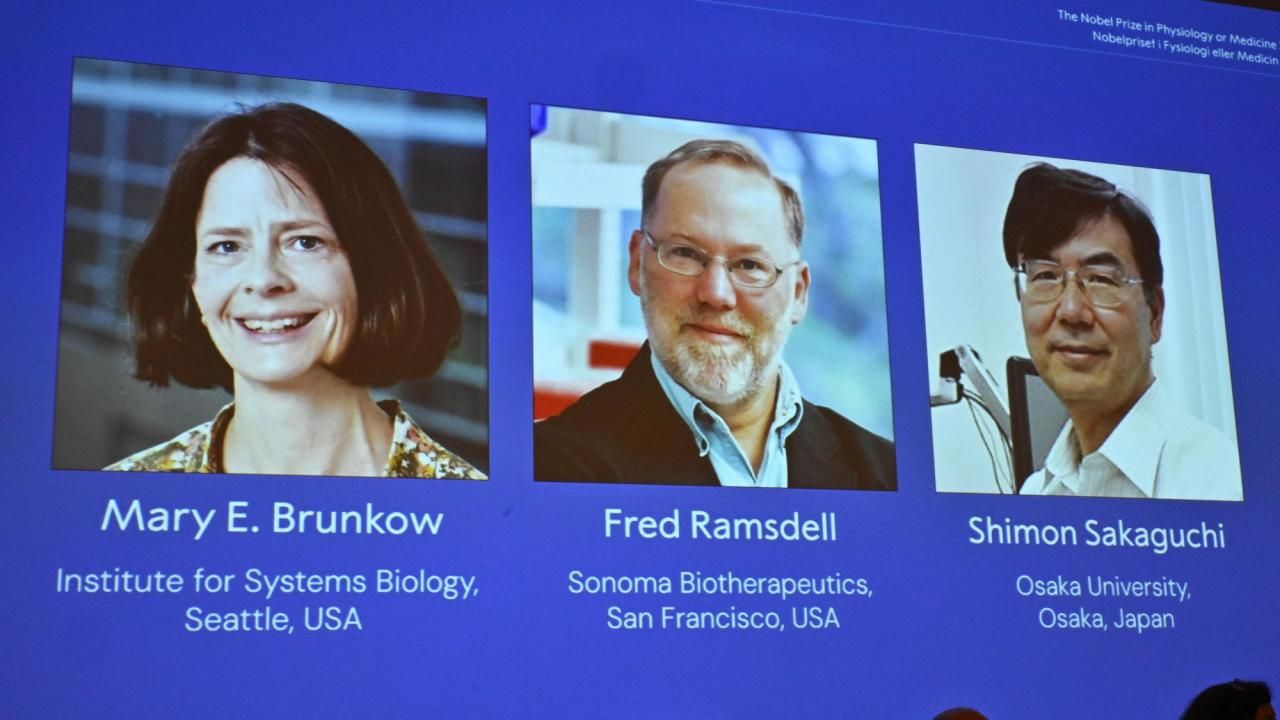SCIENCE

THREE SCIENTISTS WIN 2025 NOBEL PRIZE IN MEDICINE FOR GROUNDBREAKING WORK ON IMMUNE TOLERANCE
Three scientists — Mary E. Brunkow, Fred Ramsdell, and Dr. Shimon Sakaguchi — have been awarded the 2025 Nobel Prize in Medicine for their groundbreaking discoveries concerning peripheral immune tolerance, a key mechanism that helps the body prevent autoimmune diseases.
The Nobel Committee announced the award on Monday, October 6, at the Karolinska Institute in Stockholm, marking the first of this year’s Nobel Prize announcements.
Brunkow, 64, serves as a senior program manager at the Institute for Systems Biology in Seattle, while Ramsdell, 64, is a scientific adviser for Sonoma Biotherapeutics in San Francisco. Sakaguchi, 74, is a distinguished professor at the Immunology Frontier Research Center at Osaka University, Japan.
Brunkow learned of her award in an unexpected way. “My phone rang and I saw a number from Sweden and thought: ‘That’s just spam,’” she said, laughing. Her husband, Ross Colquhoun, recalled telling her the news: “When I told Mary she won, she said, ‘Don’t be ridiculous.’”
Meanwhile, Sakaguchi expressed his joy during a press conference in Osaka, saying, “I hope research in this area will further progress so that our findings can be used in treatment. I hope we can contribute to that as well.”
The Discovery That Changed Immunology
The human immune system is designed to detect and eliminate threats like bacteria and viruses. However, sometimes immune cells mistakenly attack the body’s own tissues — leading to autoimmune diseases such as diabetes, lupus, and multiple sclerosis.
Traditionally, scientists believed this was prevented through a process known as central tolerance, in which potentially harmful immune cells are eliminated in the thymus.
The Nobel-winning trio discovered an additional safeguard, known as peripheral immune tolerance.
The breakthrough began in 1995 when Sakaguchi discovered a new type of T cell — now known as regulatory T cells (T-regs) — which act as peacekeepers, suppressing immune responses that could harm the body.
Then, in 2001, Brunkow and Ramsdell identified a mutation in a gene called Foxp3, which plays a critical role in T-reg function and is linked to a rare autoimmune disease in humans.
Two years later, Sakaguchi connected the dots — showing that the Foxp3 gene controls the development of T-regs. This discovery revealed how these cells act like “security guards,” ensuring that other T cells don’t overreact and attack healthy tissue.
“From a DNA level, it was a really small alteration that caused this massive change to how the immune system works,” Brunkow explained.
A Discovery With Global Impact
The Nobel Committee praised the scientists for transforming the field of immunology.
“Their discoveries have been decisive for our understanding of how the immune system functions and why we do not all develop serious autoimmune diseases,” said Olle Kämpe, chair of the Nobel Committee.
Experts believe their findings will pave the way for new treatments for autoimmune diseases and cancer, as researchers explore how regulatory T cells can be harnessed for therapy.
“The work opened a new field of immunology,” said Marie Wahren-Herlenius, a rheumatology professor at the Karolinska Institute.
"This represents a significant development in our ongoing coverage of current events."— Editorial Board









